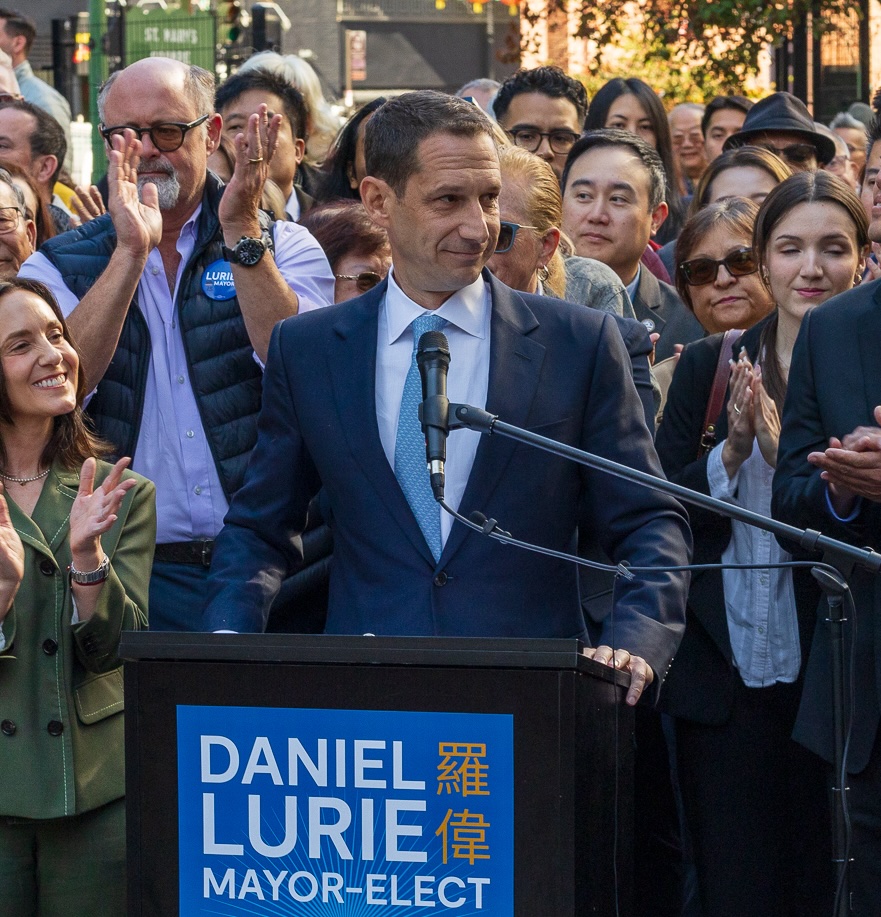Daniel Lurie just won the right to take over the Mayor’s Office in San Francisco during the worst fiscal crisis in decades—and how he addresses it will define not just his first year but his entire career in politics.
Lurie has made no secret of the crisis (and is, to some extent, blaming it on Mayor London Breed). From a Lurie press release:
“San Franciscans voted for accountability and change from the unsustainable status quo at City Hall,” said Mayor-elect Daniel Lurie. “The budget deficit is a crisis that we must face head-on, and it will require us to make difficult decisions. We can’t simply cut our way out of this nor can we balance the budget on the backs of working people. We need to stop spending more than we can afford while prioritizing investments that are critical to a full economic recovery and the maintenance of essential services. Beyond living within our means, fostering a diverse and growing economy is critical to eliminating chronic budget deficits. This moment requires all of us to work together to advance the best interests of San Franciscans.”
That’s one spectacular political statement.

If we can’t cut our way out of this or balance the budget on the backs of working people—and Lurie has made it clear that he won’t cut the police budget—then what’s he planning to do?
The first budget problem he inherits is Breed’s refusal to fund nonprofits that are delivering crucial services to the most vulnerable San Franciscans. The supes found $58 million worth of waste in the mayor’s proposed budget, and allocated that to local service providers. But Breed withheld the money.
Already, the People’s Budget Coalition is warning Lurie:
In 2024, the City’s budget shortfall of $780M was disproportionately balanced by $100M in cuts to Community Based Organization Grant programs, including an unprecedented $30M cut in children’s services and the gutting of the Sugary Drinks Tax community-led programs. As expected by weary advocates, the city plans to balance the budget on our backs yet again.
The General Fund, which the mayor and the supes control, is a little more than $6 billion. With the existing deficit, and the potential for major cuts from the Trump Administration (SF gets at least $500 million a year in federal money) Lurie might have to cut more than 15 percent of the discretionary spending.
Almost $800 million (most of the amount of the deficit) goes to the Police Department, and all Lurie has spoken about is spending more on cops. He’s also vowed to continue arresting drug dealers and drug users.
That, of course, means he will eventually have to spend more on the county jail, the Sheriff’s Department, the district attorney, and the public defender. Arresting, prosecuting, defending, trying, and locking up large numbers of people is horribly expensive.
Cutting social services that often prevent people from entering a life of crime just makes that cycle, and cost, worse. Preventing crime is much, much cheaper than punishing criminals.
And yet: That’s where the budget is right now.
There are, of course, alternatives to “cutting our way out.” Budgets have two sides—revenues and expenses. The city has limited options to raise new revenue—but that doesn’t mean it has no options. Progressives have gone to the ballot twice recently to raise taxes on the largest corporations in town and on luxury real-estate sales. The mayor could ask the controller and the city attorney to come up with a series of options for bringing in enough new money through taxes on those who can afford it to blunt the deficit.
That has to be a strategy for cities and states who will suffer from federal cuts (and from the Trump tax cuts on the very rich.) So far, Gov. Gavin Newsom is ignoring the concept. If he really wanted to address the deficit without harming the vulnerable, Lurie could push the state Legislature to allow a city income tax.
Years ago, San Francisco International Airport brought in more money than it spent, and the General Fund got the benefits. Now, SFO spends sizable amounts on, for example, high-paid employees who sometimes do little or no work (this was former Mayor Willie Brown’s way to reward friends); some cuts in waste there could help with the deficit.
(It won’t help this year, but if the city took over PG&E’s distribution system and created a full retail public power system, San Francisco could clear hundreds of millions of dollars in new revenue every year.)
I emailed Lurie’s press office and asked if any new revenue measures were on the table. I got no response.




